Genesis Air Photocatalytic Oxidation (PCO) Air Purifiers
Don’t Just Capture Indoor Air Contaminants – Destroy Them
Smaller Contaminants Pollute Indoor Air
Traditional HVAC filters capture large particles well, however, that’s not enough. Circulating throughout the indoor air of most buildings are smaller particles, such as viruses, bacteria and Volatile Organic Compounds (VOCs). Unfortunately for occupants, even the most efficient HEPA filters will miss capturing all of these small-sized contaminants.
Don’t Just Capture, Destroy
HIGHMARK has partnered with Genesis Air to bring to market an air-purifying solution that doesn’t rely on capturing particles. The technology is called Photocatalytic Oxidation (PCO), which destroys organic compounds by turning them into CO2 and water.
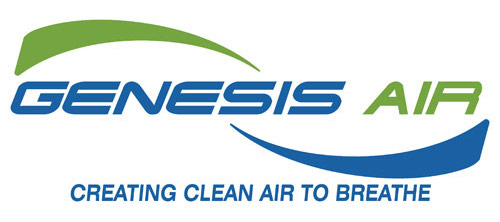
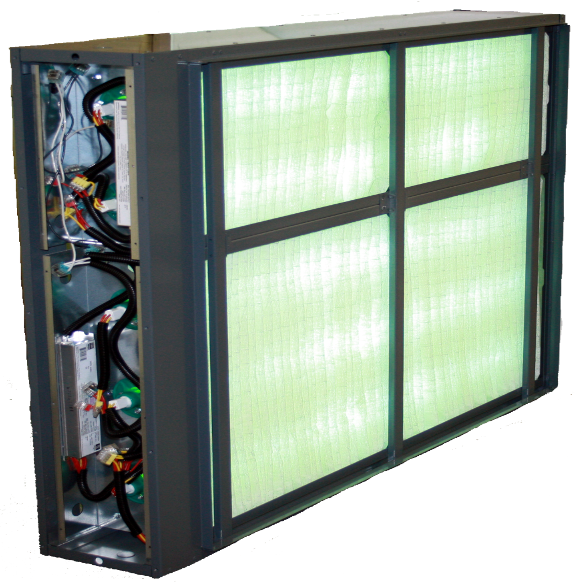
Improving Indoor Air Quality
By destroying harmful contaminants, such as viruses, bacteria, bioaerosols and VOCs, indoor air quality (IAQ) is greatly improved. This supports high-level sustainability certifications, such as the WELL Building Standard, among others.
Diminishing Unpleasant Odors
PCO air purifiers can cut down on unpleasant odors. Inside the panels, hydroxyl radicals accelerate the breakdown of most VOCs by destroying the molecular bonds. This helps combine the organic gases to form a single molecule that isn’t harmful to humans, thus enhancing the air-cleaning and odor-mitigating efficiency.
For example, odor molecules that are minimized come from such substances as tobacco, formaldehyde, nitrogen dioxide, urine and fecal odor, gasoline and many other hydrocarbon molecules in the atmosphere.
Protecting the Safety of Occupants
The PCO oxidation reaction takes place at the coated surfaces within the air purifier. Unlike Bi-Polar Ionization or Ozone systems, the oxidizers created are always contained inside the cleaner. As a result, no reactions take place in the occupied space where occupants could be harmed.
Optimizing Energy Efficiency
Cartridge or pleated-style filtration add significant pressure drop to an airside system, thus increasing energy consumption. PCO technology introduces less than 0.05” of static pressure at 500 feet per minute, which will have no effect on fan energy consumption. This makes it easy to retrofit into any HVAC system.

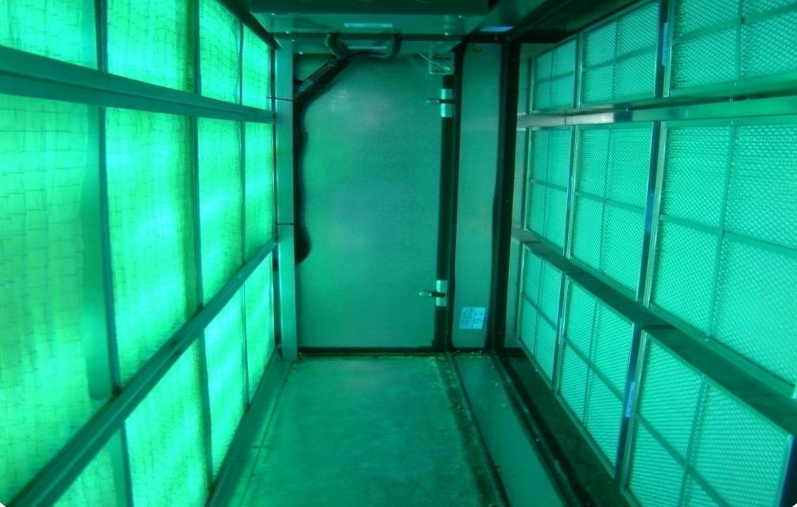
Tremendous Single-Pass Contaminant Removal
The effectiveness of contaminant removal in a single pass without a filter was tested by RTI International, an independent nonprofit research institute. RMI found that the PCO air purifier offers tremendous efficacy in removing contaminants, including:
- MRSA (Se): 99.9%
- Tuberculosis (Mp): 88.7%
- Common virus/influenza (MS2): 43.6%
- Bacteria (MS2): 34.6%
- Mold (Av): 11.4%
Third-Party Tested
- Proven, third-party tested in the lab and field-tested by RTI International, the National Healthcare Safety Network (NHSN) and the Defense Proving Ground (DPG)
- Certifications: UL, CARB, FIFRA (EPA) and OSHPD
Key Differentiators
Genesis Air incorporates a revolutionary technology into their Photocatalyst GAP™ to reduce airborne biologics and VOCs. Key differentiators include:
- Proven, third-party tested in the lab and field-tested by RTI International, the National Healthcare Safety Network (NHSN) and the Defense Proving Ground (DPG)
- Certifications: UL, CARB, FIFRA (EPA) and OSHPD
- Rationalized design using ASHRAE standards for application-specific products
- Enhanced safety: no ozone or by-products are broadcast into the occupied space, no accumulation of chemical contaminants; converts toxic substances into benign materials
- Opportunities for energy reduction
- Value-priced, low lifecycle costs
- 15-year expected photo-catalyst lifespan
- Built to last, easy to use and maintain, flexible
The Process of Destroying Contaminants
The below diagram outlines how PCO air purifiers convert harmful contaminants into benign materials:
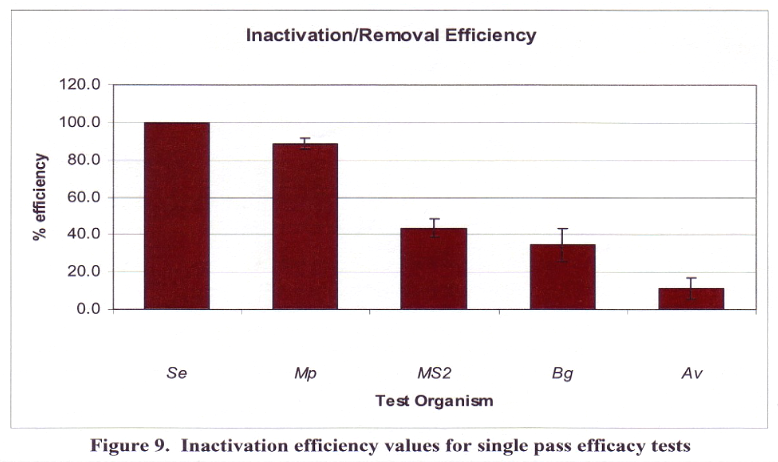
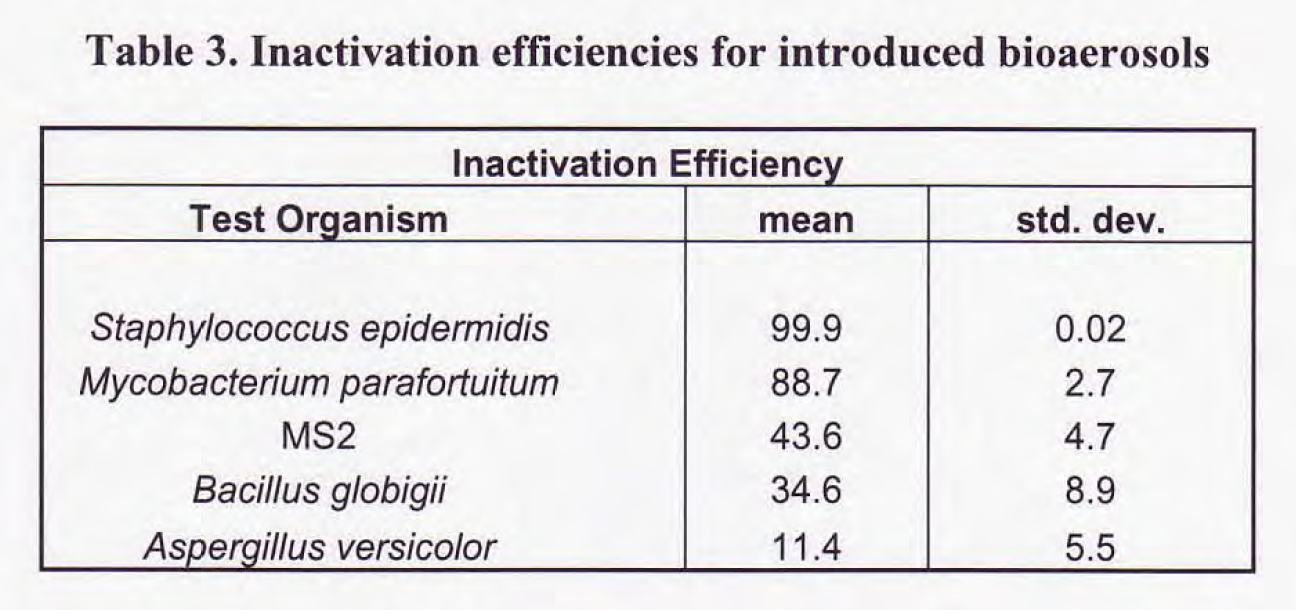



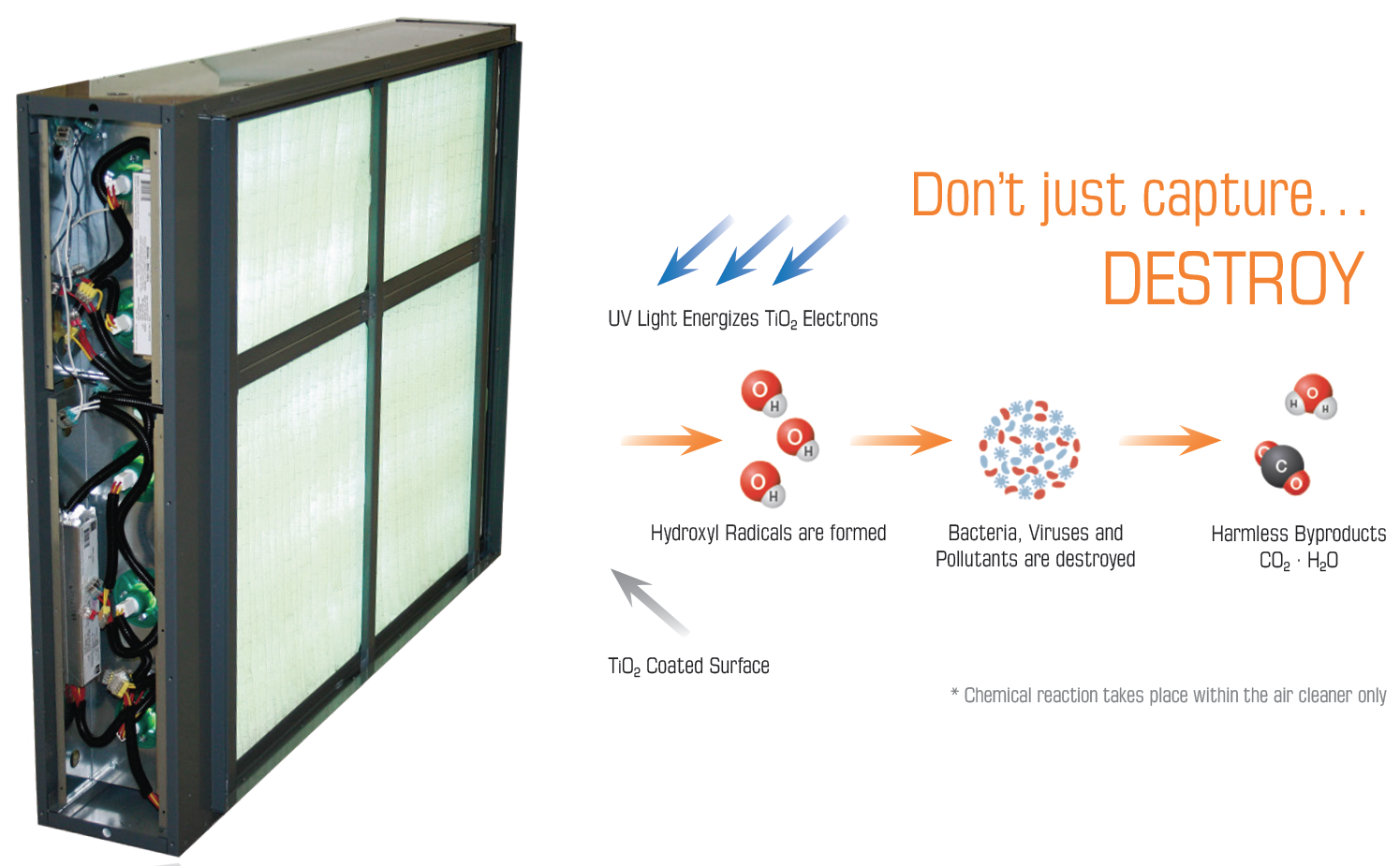
Reducing Viruses and all Contaminants in the Air and on Surfaces
By implementing PCO air-treatment panels in hospitals and all types of commercial buildings, the number of airborne viruses, mold, bacteria and VOCs can be significantly reduced.
This is especially true since ASHRAE confirmed the movement of bioaerosols by air-handling units (AHUs). Accordingly, PCO air-treatment panels act as a first line of defense against contaminants entering an indoor space.
What’s more, cleaner indoor air has proven to drastically slow and minimize surface contamination. Subsequently, because many infections occur from touching contaminated surfaces, cleaning the indoor air will help to alleviate this issue.
CORONAVIRUS (COVID-19)
Destroy Coronavirus (COVID-19) with PCO Air Purifiers
The Coronavirus (COVID-19) is airborne and can live up to three hours in the air. The virus particles are also small and can penetrate through HEPA filters. Therefore, utilizing PCO air purifiers to kill the virus in indoor spaces can work well. Consider these points from Genesis Air:
- PCO air-purification panels destroy droplet nuclei particle <5 microns while airborne as they pass through the panel.
- COVID-19 particles are .06 to .14 microns, small enough to penetrate 99.97 HEPA filters. The size is of major importance as the Air Force and NIH showed the ability of a living virus to penetrate even medical-grade HEPA filters.
- Although no samples of COVID-19 are available for testing, PCO panels are highly effective in removing MS2 (common virus/influenza). This is an EPA-approved substitute for other virus testing and has shown to be particularly tough to neutralize.
- Consequently, PCO panels can be utilized to kill COVID-19 before they enter an indoor space.
- In addition, the removal of COVID-19 from the air will deter surface contamination.
Air-Filtration Guidelines for Consulting Engineers
In the challenging situation presented by the Coronavirus (COVID-19), it’s critical for consulting engineers to be as informed as possible. For this reason, HIGHMARK and Genesis Air compiled detailed air-filtration guidelines, which can be accessed by clicking on the accompanying image.
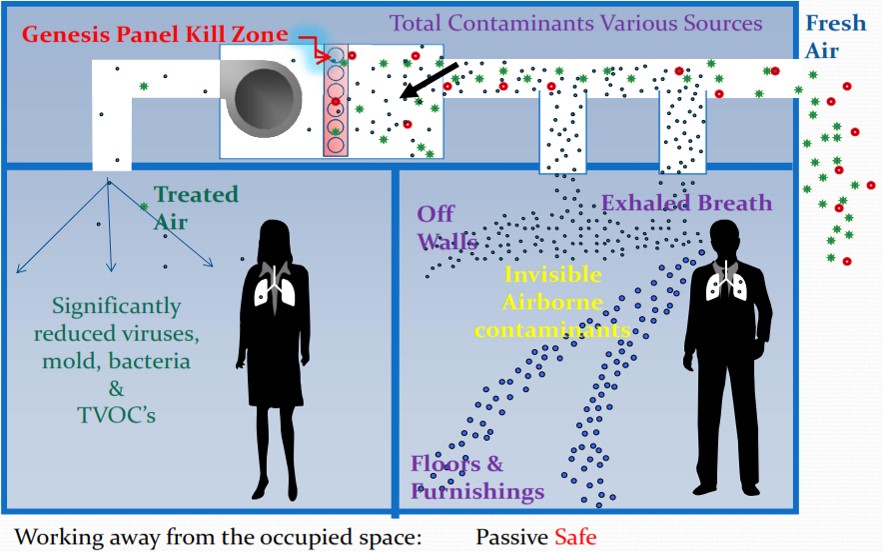
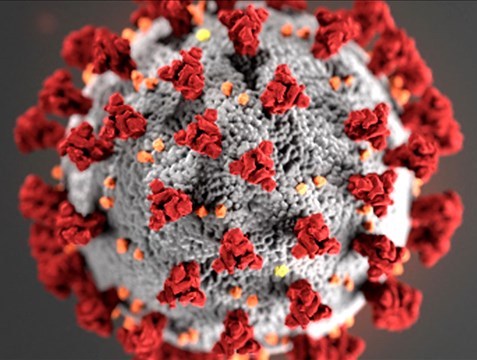
MRSA
Fight MRSA with PCO Air Purifiers
Hospitals are increasingly challenged by rising patient infection rates, especially from hospital-acquired infections (HAIs), such as methicillin-resistant Staphylococcus aureus (MRSA).
MRSA causes about 80,000 infections and 11,000 deaths annually in the U.S. and up to $4.2 billion in costs. It’s especially difficult to remove from indoor spaces because the bacteria travel easily through the air.
The best way is to prevent MRSA from spreading is with PCO air-cleaning technology that specializes in airborne infection control. PCO systems destroy all bacteria, such as MRSA, and integrate seamlessly with existing HVAC systems.
To learn more, click on the accompanying image to view an overview video on PCO air-cleaning panels and MRSA.
Hospitals need PCO air-purifying technology to fight MRSA, improve airborne infection control and reduce HAIs. Here are four reasons why hospitals heed PCO to fight MRSA:
- Prevent MRSA from spreading: MRSA is recirculated in hospitals via the HVAC. PCO technology stops the spread of MRSA by acting as a first line of defense.
- Destroy 99.99% of MRSA: HEPA filters simply catch bacteria, whereas PCO systems destroy 99.99% of MRSA on contact in a first pass.
- Strengthen cleaning methods: PCO technology bolsters traditional in-room air filtration to eliminate MRSA. Further, by cleaning the indoor air, this leads to less-contaminated surfaces.
- Improve the Standardized Infection Ratio (SIR): The lower the SIR, the better. Hospitals with PCO air-cleaning technology have a SIR of 52.14% compared to the U.S. national average of 92.07%.
PRODUCTS
Genesis Air 2008 CU
- The Genesis Air 2008 CU unit is designed to be installed in the supply ductwork of any rooftop or AHU downstream of the particulate filtration and after the evaporator coil.
- Installation must be completed by qualified service personnel.
- This unit may be used in conjunction with a filter grill on the return or on the supply duct.

Let’s create a more sustainable world.
Our team partners with engineers, contractors, owners and operators across all commercial and high-rise residential building types. We customize our building efficiency technologies for every job to meet the specific needs of the most demanding structures.

